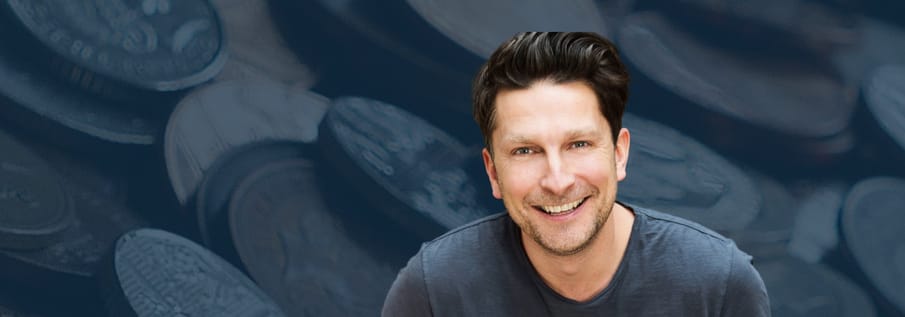Welcome to Money on Your Mind, the series where we explore the reality of money and mental health in the lives of real people. In this edition, Richard reflects on his relationship with money following a blood cancer diagnosis, and shares the work he and his wife do to support other patients
Richard Tyler as told to Kathryn Wheeler
Seemingly every day there’s something new to pay for, and Monday was paying for one of the businesses that we run. The bank balance was always fairly buoyant pre-diagnosis. I would look at it and think, ‘That’s quite a nice amount to have in there’ – and I was always comfortable knowing that money would be replenished. But it’s different now. While there is a part of me that just gets on, and my wife Kelly works ridiculously hard to make up the shortfall, I worry about money a lot, and there’s always a bit of me that wants to think about how we can cut costs.
The day I was diagnosed with blood cancer, we were offered a drug that could increase my chances of going into remission by about 15%. But in order to have that drug, it would cost us £40,000. They also said we have to raise the money in a week to pay for it. My father-in-law offered to sell his house, but Kelly’s wisdom was: ‘Let’s set up a GoFundMe campaign and see if we can get some funds together.’ Within five days we raised the money.
After 10 days, the money continued to come in. We were very aware that there are a lot of people who are on a cancer path who are unsupported, isolated, and alone. They have to get themselves on a tube each day with a pillow under their arm, take themselves off for chemo, then travel home and sit there worrying about their finances. So, 10 days after a diagnosis, we decided to set up the Willow Tree Foundation, to stand shoulder to shoulder and heart to heart with those living with blood cancer. Since then, we’ve given out more than £50,000 in grants.
On Tuesday, Amazon Prime Day was on the horizon. We started making a list of things we might be able to buy. We’re always making decisions about what we spend money on, and when we do it. We’ve never had a lavish lifestyle, but we did have to pay £100 for the vet this week – so maybe we don’t have that takeaway. It feels like forever bargaining. And that’s unfamiliar. I used to live a bit of a life that was quite unconscious of finances. I always had a belief that money would find us, but now I’m occupying this place where I don’t know that.
I suppose, in some ways, it’s a good thing because it keeps me very truthful to this incurable illness. Perhaps if I were able to just leap back into work that would be more problematic, because I’d get into a familiar old groove of thinking I’m indestructible. Of course, as soon as that happens, the universe nudges us. And I can’t afford any more nudges, because getting this diagnosis was life-shattering.
If I look at the cancer groups online, there are lots of questions about finances, because it’s a worry. It’s all-consuming when the focus should be to heal and to recover – but that’s pretty impossible when we’re worrying about putting food on the table.
You also have to look at the financial entanglement of beliefs that you grew up with. I see this as being out of date and part of the patriarchal society, but I did witness my dad going out and working, and he’d leave the cash on the side for my mum each week. I don’t hold that model, but I do hold a model of being equal. And while I think Kelly and I find other ways to balance it out, it’s like a demon that keeps coming back and telling me that I should be working.
Thursday was similar to Tuesday. Things just going wrong that we didn’t budget for. We got a flat tyre, and we’ve had water coming out of our floor. In the past we’d have said, that’s a bit of a pain, but we need to get a new tyre and we need to fix the floor… But now it feels like, how many more hits can you take?
Friday was a bit of a breakthrough in that in that a client I have been coaching agreed to do another three months, which will pay our mortgage. It felt like a little win for the week. It’s like being thrown in a lifeline. So, provided we don’t have any disasters, we’re all right.
When I reflect on the week, I realise that the diagnosis forced us to make conscious decisions about our spending. Whatever our old stories are, whatever our old ideals are, we have to start inventing new ones. It’s what we’re doing, week to week. We’re really starting to offer some new stories of how we live and how we manage financially – well, not just manage, it’s about how we flourish financially, just in a different way.
a Kite Falls: A Voyage Through Descent’, is out now.


Comments